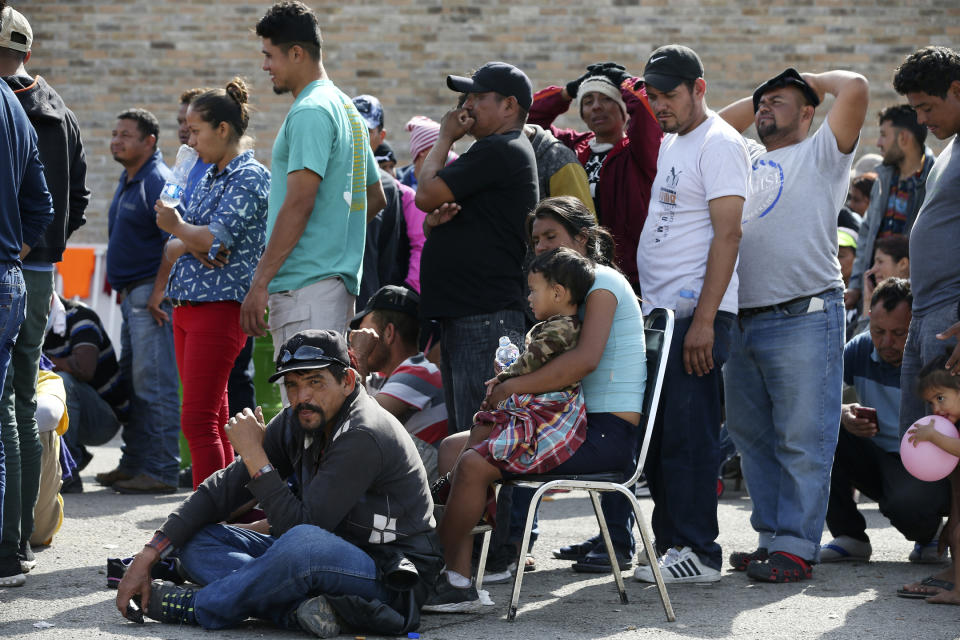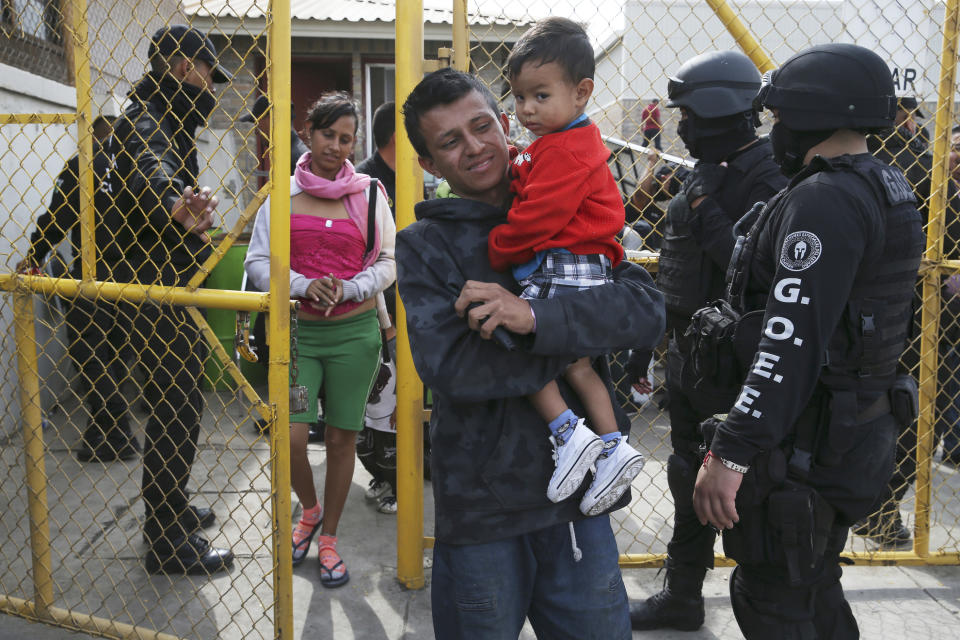Migrants held in northern Mexico scuffle with police guards
MEXICO CITY (AP) — Police briefly scuffled with some of the 1,600 Central American migrants who have been confined at an improvised shelter in the Mexican border town of Piedras Negras, across from Eagle Pass, Texas.
Video of Wednesday's incident shows some migrants tearing down a temporary awning and trying to wrestle metal barricades away from police.
The government of the border state of Coahuila said the situation was brought under control and talks were held with the migrants, who have been confined for at least 10 days in a vacant factory building that is ringed by police and soldiers.
Authorities said some of the migrants were angry about not being allowed out to go to a local store. They said about 30 were later permitted to go to the store, where migrants buy supplies to supplement the food they are given at the shelter.
Coahuila's government said it would not hesitate to turn over migrants to Mexican immigration authorities for deportation if there were any more disturbances.
"We have put a lot of effort into maintaining order and we will not allow disrespect for the law," state security secretary Jose Luis Pliego said. "We will act rigorously, if needed."
Officials said some migrants have asked to be taken to other cities in northern Mexico, presumably thinking they would have more freedom of movement.
The migrants want to present asylum claims in Eagle Pass, but only about a dozen per day are being allowed to do so.
Joe Rivano Barros, a field officer with the Texas-based refugee advocacy group Raices, said the migrants are frustrated because of a lack of information and lack of free movement.
"It's monotonous, it's like living in a prison," Rivano Barros said of the migrants he has spoken to through the chain-link fence at the shelter. His group, which offers free legal services to migrants, is not allowed inside the shelter.
Mexico's federal government had said previously that the migrants were not being allowed out of the shelter except under escort because most did not have humanitarian transit visas, while other groups of Central Americans have waited at the Mexico-Guatemala border to apply for such visas. But after a few hundred migrants at the shelter got humanitarian visas, most still weren't allowed to freely come and go at the shelter.
Migrants frustrated by the lack of information and confinement have asked to go elsewhere.
Rivano Barros said he has seen about seven buses waiting outside the shelter to take migrants to cities like Hermosillo, Sonora. From Hermosillo, migrants could reach the border city of Tijuana, across from San Diego, where other caravans have gone.




